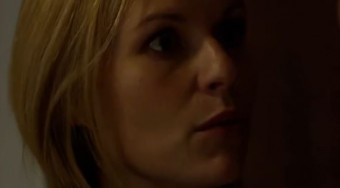Blog
Homeland Season 4 Review

For long-term fans of the Showtime drama Homeland (including myself), visit this a complete storytelling reboot of the series seemed necessary after the show’s uneven third season. The first season of the show was one of the best opening seasons of any show ever transforming the Showtime drama from being an under-the-radar program about national security and a prisoner-of-war who may have been turned into a terrorist into the behemoth it is today.
At the end of its first season, drugs Homeland walked away from the Emmy Awards with wins for outstanding drama series, page outstanding writing for a drama series, outstanding casting for a drama series, outstanding single-camera picture editing for a drama series along with wins by its two leads actors Claire Danes and Damian Lewis.
Not bad for a show coming out of the gate.
Since that season though, the show has attempted in the following two seasons— with varying degrees of success— to keep its formula and the chemistry between the two lead actors going. During the third season finale, though, a powerful but seemingly-inevitable plot twist changed the show completely allowing for a full story reboot to occur in season four.
The consequences of that major season three twist are in full effect during the first three episodes of the show’s fourth season, which were available for review. No longer is Carrie Mathison (Danes) caught between two worlds (a professional one and a romantic one). She’s now firmly settled in as the station chief of a American military base in Kabul, Afghanistan. Despite being physically separated from him, she works alongside series newcomer, Sandy (Corey Stoll), the station chief at a base in Islamabad, Pakistan. As one of the characters note, Carrie’s team flies the bombing missions in the region while Sandy’s team locates the targets.
In the season premiere, appropriately entitled “Drone Queen,” Carrie receives a birthday cake with that nickname on it. As the season progresses though, the consequences from a strike on a terrorist target (who was attending a wedding party at the time) comes back to haunt the CIA with the team facing renewed scrutiny after a video of the attack surfaces online.
As it once did, Homeland quickly brings viewers back into its webbed world of conspiracies, national security emergencies and terrorism here. From the politics of drone strikes to the consequences of innocent lives being lost, the drama offers up a fully-fleshed group of characters who, in one way or another, are affected by the controversial work they perform. Early on, Quinn (Rupert Friend) takes center stage as his guilt— over his actions in a tight situation in the season premiere and the a deadly mistake he made last season— overwhelms him. Of course, the great stable force of Saul Berenson (Mandy Patinkin) returns here but in more of a supporting role than he’s used to. He works for a private agency now but longs for being back in the middle of the fight.
What the fourth season of Homeland offers— which was somewhat lacking in the previous two seasons (especially in season 3)— is a freedom to move forward. Since the end of season one, the writers have been held back by an unnecessary obligation to keep an eye on the Brody household and what that family was going through. That obligation is now missing although Carrie, of course, still fondly remembers her relationship with Brody. It should be noted that there are scenes here (especially in episode 2) that show Carrie in a harsh light but it’s okay for us to dislike Carrie.
Being bored with her is problematic though but like in its opening season, season four is packed with surprises and great twists— the best of which is that Homeland has returned to greatness.
Related Content
Comments
Recent Posts
Categories
- 10 Best Things
- 10 Characters
- 10 Differences
- 10 Movies
- 10 Reasons
- 10 Ways
- 5 Characters
- 5 Directors
- 5 Films
- 5 Reasons
- 5 Reasons We Love
- 5 Roles
- 9 Movies
- Appreciation
- Award Shows
- Best of the Year
- Blu-Ray/DVD Reviews
- Book Reviews
- Box Office Report
- Characters: Then and Now
- Emmy Awards
- Episode Recap
- General
- Giveaway
- Golden Globes
- Homeland
- HuffPost Live
- Interview
- Jimmy Kimmel
- Jurassic World
- Monday Spotlight
- Movie News
- Movie Preview
- Movies to Look Forward to
- Must-Read Lists
- Must-Read Reviews
- New on DVD
- New Trailer
- Oscars
- Television Review
- The Colbert Report
- The Credits
- The Late Late Show with James Corden
- The Late Show with Stephen Colbert
- The Movies of
- The Year in Movies
- Tonight Show with Jimmy Fallon
- Trailer Talk
- Trailers
- TV Trailer
- Video
- Worst of the Year












